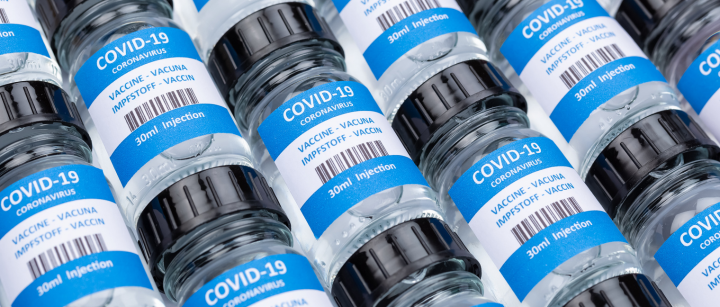Q&A on the 2025-2026 COVID-19 Vaccines
3 minute readPublished: Friday, October 10, 2025 at 8:31 pm

COVID-19 Vaccine Guidance for 2025-2026: What's Changed?
The annual rollout of updated COVID-19 vaccines is underway, with shots available for individuals aged 6 months and older. However, this year's guidance from the Centers for Disease Control and Prevention (CDC) introduces a significant shift. Unlike previous years, the CDC is recommending the vaccines only after a discussion with a healthcare provider, a process known as shared clinical decision-making.
The Food and Drug Administration (FDA) approved the vaccines for those 65 and older or with a risk factor. The CDC's Advisory Committee on Immunization Practices (ACIP) recommends vaccination for everyone 6 months and up, but only after consultation with a healthcare provider. This change comes amidst a backdrop of controversy, including the dismissal of the previous ACIP and the appointment of new members.
Experts emphasize that the vaccines remain safe and effective, particularly for high-risk groups. These include older adults, young children, pregnant individuals, and those with underlying health conditions. Vaccination is also recommended for those who have not been vaccinated previously.
Four updated vaccines are available: Spikevax and mNEXSPIKE from Moderna, Comirnaty from Pfizer/BioNTech, and Nuvaxovid from Novavax. The mRNA vaccines target the LP.8.1 subvariant of the coronavirus. The mNEXSPIKE vaccine uses a lower dose of mRNA.
While the CDC recommends shared clinical decision-making, other organizations and states have issued their own recommendations, often aligning with expert guidance. These recommendations generally emphasize the importance of vaccination for high-risk groups.
Vaccines are available at pharmacies and doctors' offices, and most insured individuals can receive them at no cost. However, some experts express concerns about potential barriers to access, particularly for young children. The new approach could lead to confusion and potentially lower vaccination rates.
BNN's Perspective:
The shift towards shared clinical decision-making, while intended to personalize healthcare, could inadvertently create confusion and potentially hinder vaccination efforts. Clear, consistent messaging from health authorities is crucial to ensure that individuals, especially those in high-risk groups, can easily access and benefit from these updated vaccines.
Keywords: COVID-19 vaccine, CDC, FDA, ACIP, shared clinical decision-making, vaccination, high-risk groups, Moderna, Pfizer/BioNTech, Novavax, vaccine recommendations, vaccine access, vaccine safety, vaccine effectiveness, LP.8.1, mNEXSPIKE